
East Jerusalem: A Tapestry of History and Culture
East Jerusalem is a fascinating blend of ancient history and modern-day life. As you wander through its historic streets, you will encounter an array of cultural and religious landmarks that have stood the test of time. From the iconic Dome of the Rock to the bustling markets of the Old City, East Jerusalem offers a unique glimpse into the heart of this storied region. One of the most compelling aspects of East Jerusalem is its incredible diversity. The neighbourhood is home to a rich tapestry of communities, each contributing to the vibrant mosaic of daily life. Whether you're exploring the narrow alleys of the Muslim Quarter or enjoying the serene atmosphere of the Mount of Olives, you'll be struck by the sense of history that permeates every corner. Food lovers will be delighted by the culinary offerings in East Jerusalem. The area boasts a variety of traditional Middle Eastern dishes, from savory falafel and shawarma to delectable sweets like baklava and knafeh. Dining here is not just a meal, but an experience that engages all the senses. For those interested in shopping, the souks and bazaars are a treasure trove of handmade crafts, spices, and textiles. Bargaining is a common practice, so be prepared to haggle for the best deals. Whether you're looking for a unique souvenir or simply enjoying the lively atmosphere, the markets of East Jerusalem are not to be missed.
Local tips in East Jerusalem
- Dress modestly to respect local customs, especially when visiting religious sites.
- Carry cash, as many small shops and vendors do not accept credit cards.
- Visit early in the morning to avoid crowds and enjoy a more peaceful experience.
- Stay hydrated and wear comfortable shoes, as you'll be doing a lot of walking.
- Learn a few basic phrases in Arabic or Hebrew to enhance your interactions with locals.
East Jerusalem: A Tapestry of History and Culture
East Jerusalem is a fascinating blend of ancient history and modern-day life. As you wander through its historic streets, you will encounter an array of cultural and religious landmarks that have stood the test of time. From the iconic Dome of the Rock to the bustling markets of the Old City, East Jerusalem offers a unique glimpse into the heart of this storied region. One of the most compelling aspects of East Jerusalem is its incredible diversity. The neighbourhood is home to a rich tapestry of communities, each contributing to the vibrant mosaic of daily life. Whether you're exploring the narrow alleys of the Muslim Quarter or enjoying the serene atmosphere of the Mount of Olives, you'll be struck by the sense of history that permeates every corner. Food lovers will be delighted by the culinary offerings in East Jerusalem. The area boasts a variety of traditional Middle Eastern dishes, from savory falafel and shawarma to delectable sweets like baklava and knafeh. Dining here is not just a meal, but an experience that engages all the senses. For those interested in shopping, the souks and bazaars are a treasure trove of handmade crafts, spices, and textiles. Bargaining is a common practice, so be prepared to haggle for the best deals. Whether you're looking for a unique souvenir or simply enjoying the lively atmosphere, the markets of East Jerusalem are not to be missed.
Iconic landmarks you can’t miss
Church of the Holy Sepulchre
Explore the Church of the Holy Sepulchre, a sacred site in Jerusalem, rich in history, architecture, and spiritual significance.
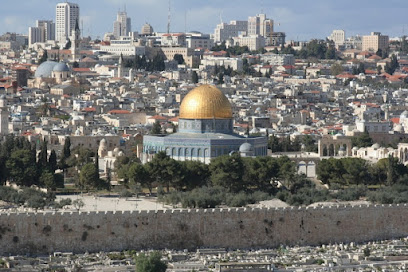
Western Wall
Discover the spiritual heart of Jerusalem at the Western Wall, a historical shrine where past and present intertwine in sacred silence.
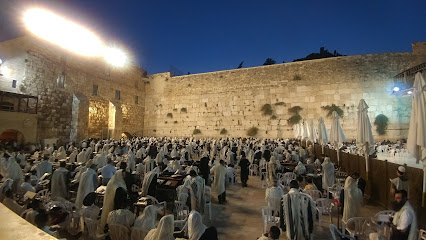
Damascus Gate
Explore the majestic Damascus Gate, a historic entrance to Jerusalem's Old City, rich in culture, history, and vibrant local life.
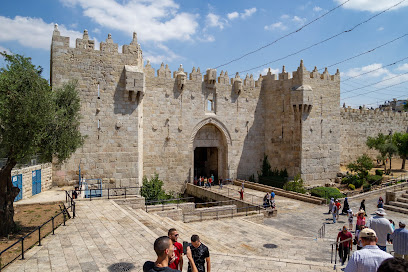
The Garden Tomb Jerusalem
Explore the Garden Tomb in Jerusalem, a peaceful haven that combines historical significance with spiritual reflection amidst beautiful gardens.
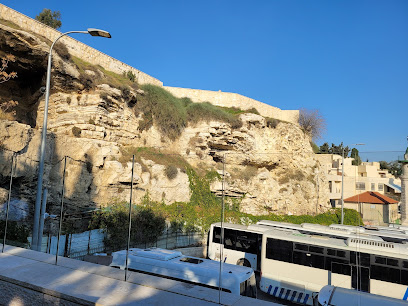
New Gate
Explore the New Gate, a historic entrance to Jerusalem that seamlessly blends ancient architecture with the vibrant culture of the Old City.
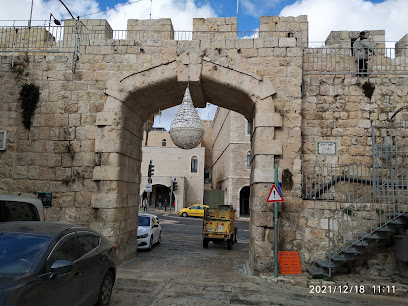
Herod's Gate
Discover the historical allure of Herod's Gate, an essential landmark that connects the past and present in the heart of Jerusalem's Old City.
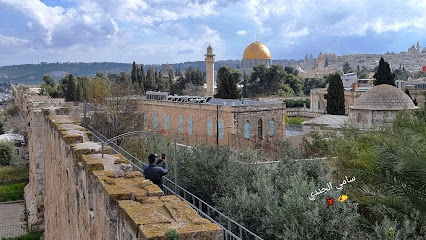
Bible Hill
Explore Bible Hill, a serene nature preserve in Jerusalem offering breathtaking views and a peaceful escape into nature's embrace.
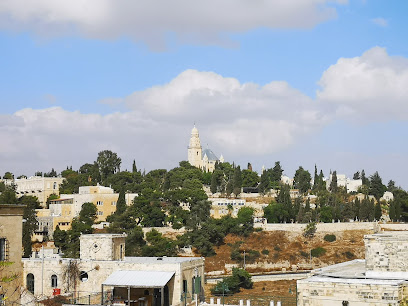
הקרן למורשת הכותל המערבי | סיורי סליחות | סיורים לקבוצות | טיולים בירושלים | סיורי חנוכיות | בר מצווה | בת מצווה | חלאקה
Discover the Kotel, a sacred national reserve in Jerusalem, where history, spirituality, and culture converge for an unforgettable experience.
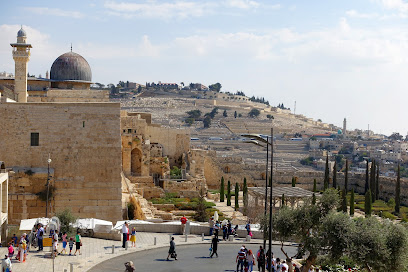
Eastern Wall
Discover the Eastern Wall of Jerusalem, an iconic historical site rich in culture, heritage, and breathtaking views that tell the story of an ancient city.
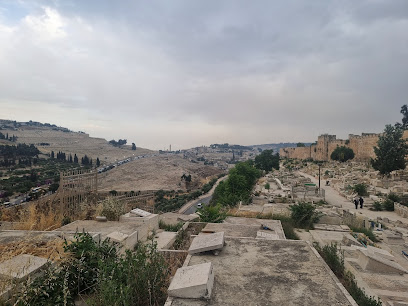
Old historic pillar
Experience the timeless allure of the Old Historic Pillar in Jerusalem, a breathtaking landmark steeped in rich history and cultural significance.
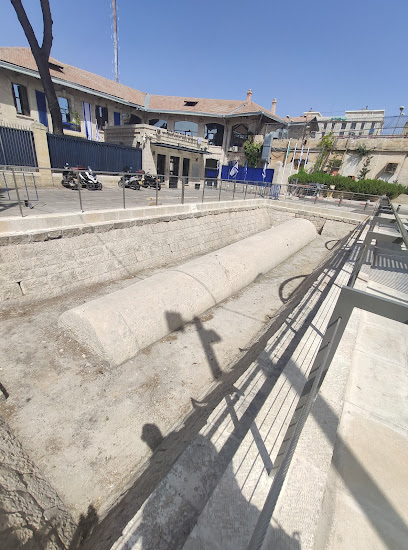
Unmissable attractions to see
The Israel Museum, Jerusalem
Explore The Israel Museum in Jerusalem, a cultural gem showcasing art, archaeology, and history through exceptional exhibits and breathtaking architecture.
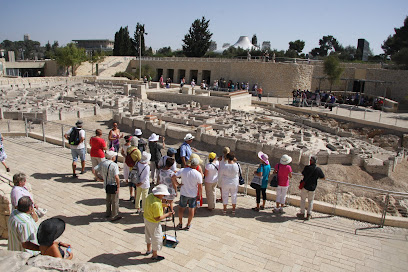
Western Wall
Experience the spiritual essence of Jerusalem at the Western Wall, a historic site of prayer and pilgrimage that resonates with millions.
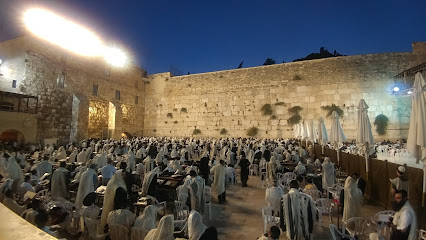
Tower of David
Explore the Tower of David, a historical gem in Jerusalem, revealing the city’s rich heritage through stunning architecture and captivating exhibitions.
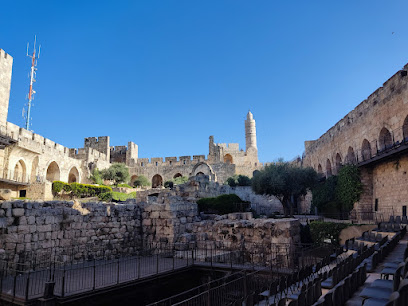
Damascus Gate
Discover the historic Damascus Gate, a stunning entrance to Jerusalem's Old City, rich in culture, history, and vibrant local life.
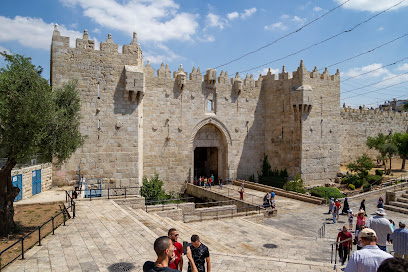
Model of Jerusalem in 2nd Temple Period
Explore the intricacies of ancient Jerusalem through a stunning model that brings the 2nd Temple Period to life, revealing the city's rich historical tapestry.
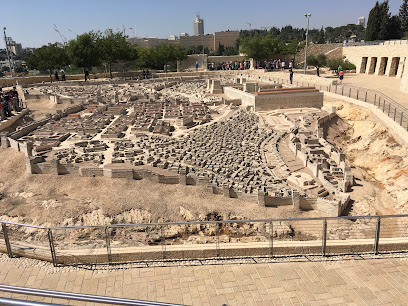
Time Elevator
Discover Jerusalem's captivating history at the Time Elevator, where past meets present in an immersive cinematic experience.
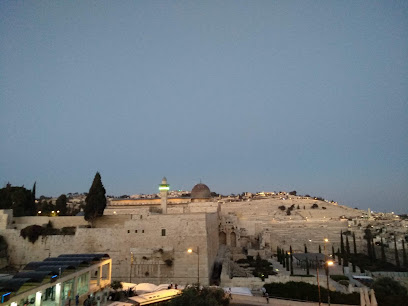
Golden Gate
Explore the historic Golden Gate in Jerusalem, a gateway of spiritual significance and architectural beauty, offering stunning views and rich cultural heritage.
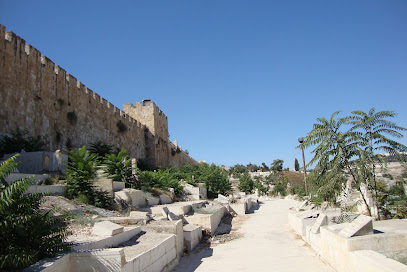
Bible Hill
Experience the natural beauty and historical charm of Bible Hill, a serene nature preserve in the heart of Jerusalem.
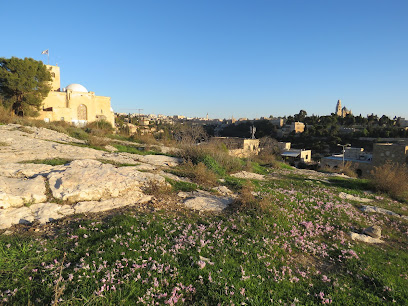
הקרן למורשת הכותל המערבי | סיורי סליחות | סיורים לקבוצות | טיולים בירושלים | סיורי חנוכיות | בר מצווה | בת מצווה | חלאקה
Experience the deep spirituality and rich history at the Kotel, Jerusalem's revered Western Wall, a must-visit for every traveler.
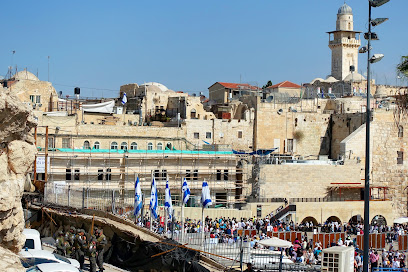
Essential places to dine
Machneyuda
Experience gourmet Israeli cuisine at Machneyuda in Jerusalem – where tradition meets modernity in every delicious dish.
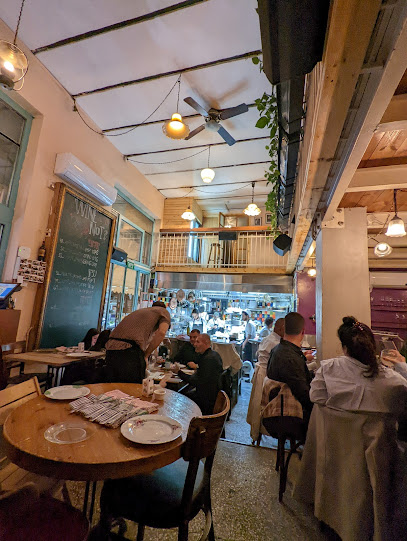
Azura
Discover Azura in Jerusalem: Experience authentic Middle Eastern flavors in a warm atmosphere perfect for food lovers.
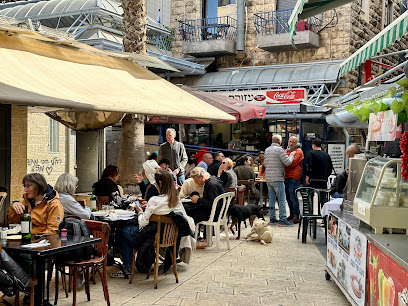
Tmol Shilshom
Discover Tmol Shilshom: A kosher dining experience blending tradition with creativity in the heart of Jerusalem.
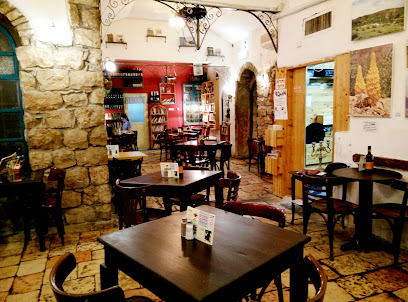
Talbiye
Experience authentic French cuisine at Talbiye in Jerusalem - where every meal is a culinary delight infused with Parisian charm.
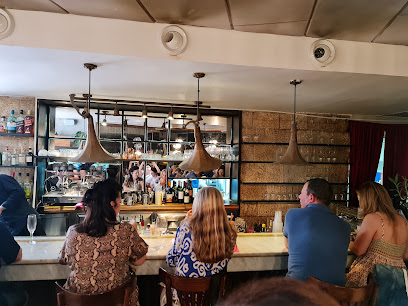
Mona
Discover the essence of fine dining at Mona in Jerusalem—where exquisite French cuisine meets unparalleled hospitality.
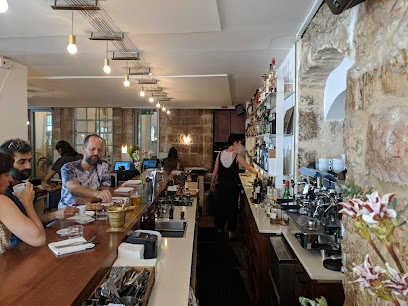
Pergamon restaurant - מסעדת פרגמון
Experience the vibrant flavors of Mediterranean cuisine at Pergamon Restaurant in Jerusalem - where every meal is a celebration.
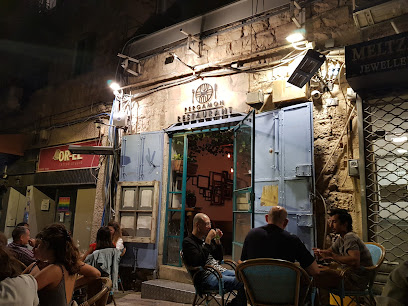
1868
Discover unparalleled dining at 1868, Jerusalem's luxurious restaurant offering gourmet cuisine and exquisite cocktails amidst historical charm.
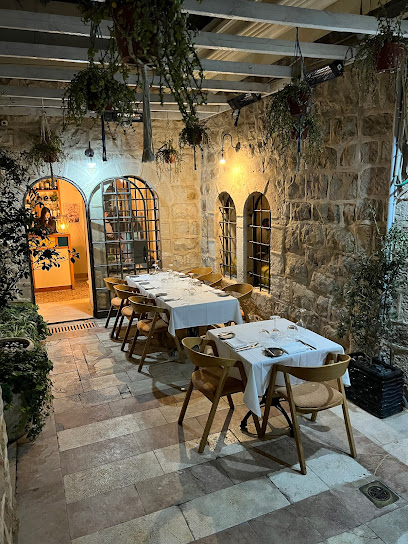
Cloves Restaurant
Experience the best of local and international cuisine at Cloves Restaurant in Jerusalem – where every dish tells a story.
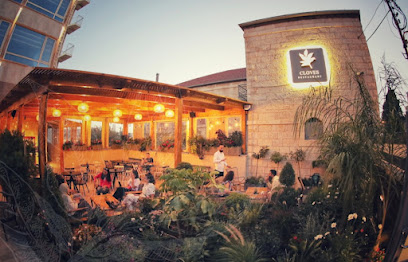
Abu-Hassan Restaurant
Discover authentic Middle Eastern breakfast delights at Abu-Hassan Restaurant in Jerusalem – a must-visit culinary destination.
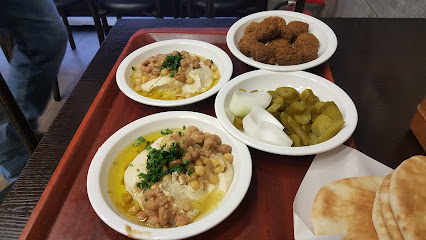
Olive Restaurant
Experience authentic Middle Eastern cuisine at Olive Restaurant in Jerusalem, where tradition meets modernity in every dish.
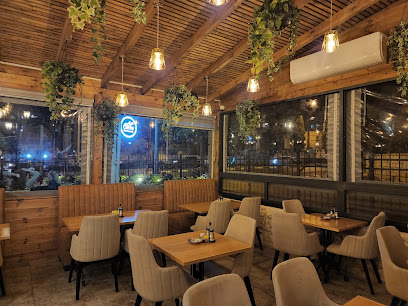
Markets, malls and hidden boutiques
Ha'metzi'on second-hand stores
Explore Ha'metzi'on Second-Hand Stores in Jerusalem for unique vintage clothing, exquisite jewelry, and sustainable shopping experiences.
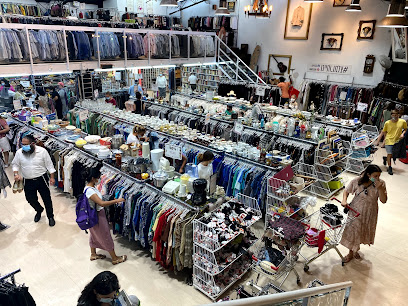
Zak’s Jerusalem Gifts
Explore the captivating collection of antiques and unique souvenirs at Zak's Jerusalem Gifts, a must-visit destination in the heart of Jerusalem.
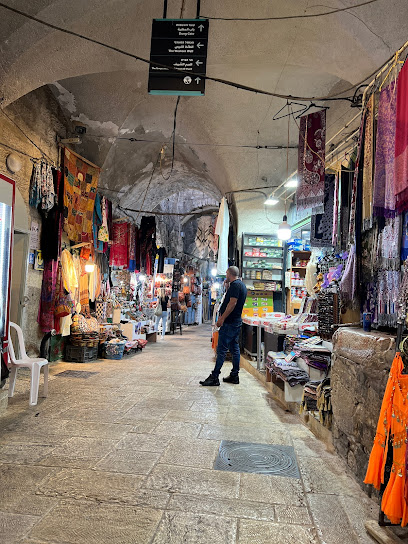
Old City Bazaar
Discover the Old City Bazaar in Jerusalem - a vibrant market filled with unique crafts, local delicacies, and rich cultural heritage.
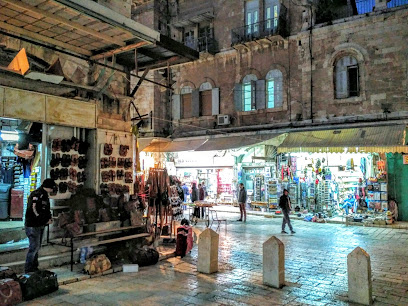
Jerusalem New Souvenir Store
Explore the heart of Jerusalem through unique souvenirs, handcrafted gifts, and authentic mementos at the Jerusalem New Souvenir Store.
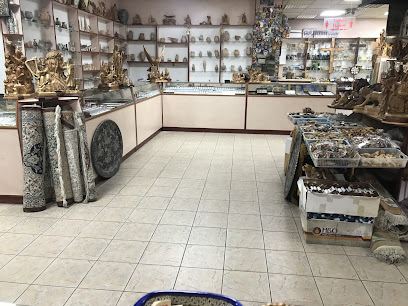
The Jerusalem Gift Shop
Explore The Jerusalem Gift Shop for unique souvenirs and authentic gifts that embody the vibrant culture and history of Jerusalem.
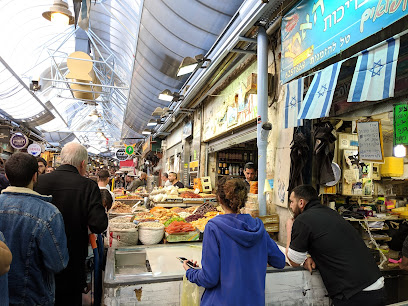
Old City Gift Shop - Souvenirs, Jewellery & Judaica in Jerusalem
Explore the Old City Gift Shop in Jerusalem for unique souvenirs, exquisite jewelry, and authentic Judaica that capture the spirit of this historic city.
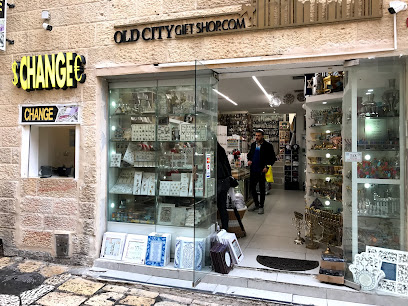
The holy land gift shops
Explore the treasures of Jerusalem at The Holy Land Gift Shops, your destination for authentic souvenirs, artistic handicrafts, and timeless antiques.
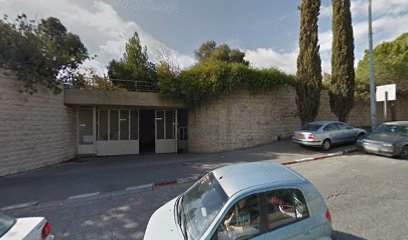
HolyLand Shop
Explore the HolyLand Shop in Jerusalem for unique souvenirs that embody the spirit and history of this ancient city.
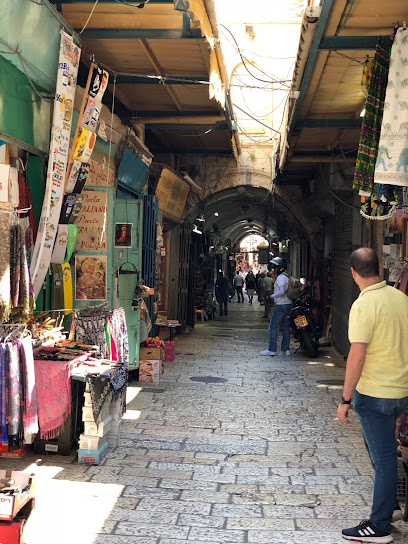
Jerusalem Shopping
Experience the essence of Jerusalem with unique gifts and local crafts at Jerusalem Shopping, your boutique destination for memorable souvenirs.
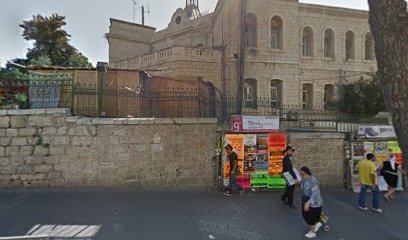
Iran Bazar
Explore the heart of Jerusalem through unique souvenirs and handcrafted treasures at Iran Bazar, a must-visit shop on Ben Yehuda Street.
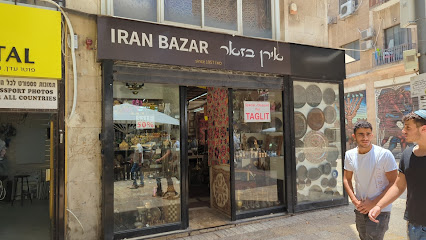
Essential bars & hidden hideouts
BeerBazaar Jerusalem
Discover the vibrant craft beer scene at BeerBazaar Jerusalem, where local brews and delicious bites await in a lively atmosphere.
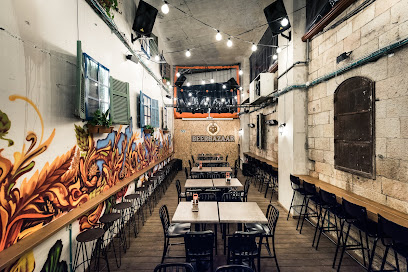
Gatsby Cocktail Room
Experience the vibrant nightlife of Jerusalem at Gatsby Cocktail Room, where expertly crafted cocktails and a stylish atmosphere await.
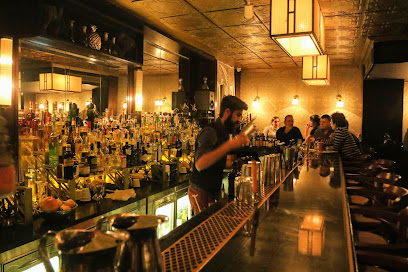
Mike's Place
Discover the lively atmosphere at Mike's Place, Jerusalem's premier sports bar offering great food, drinks, and live sports in a vibrant setting.
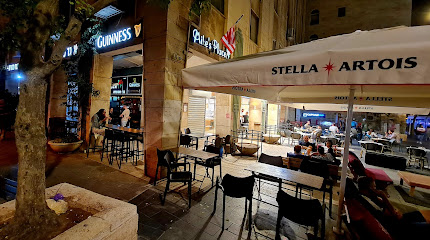
Hataklit Bar
Discover Hataklit Bar, a vibrant gastropub in Jerusalem, blending lively nightlife with delicious food and a welcoming atmosphere for tourists.
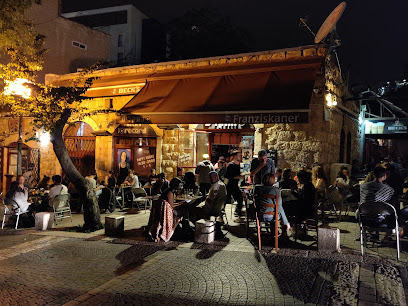
Glen Whisk(e)y bar
Explore the essence of whiskey culture at Glen Whisk(e)y Bar, Jerusalem's premier destination for spirits and nightlife.
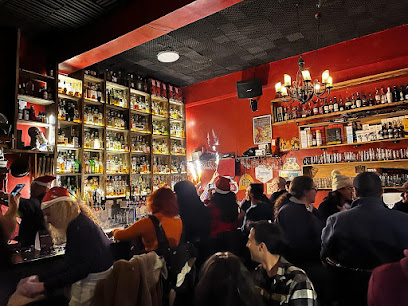
The Sira Pub
Experience the vibrant nightlife of Jerusalem at The Sira Pub, a lively spot for drinks, music, and local culture.
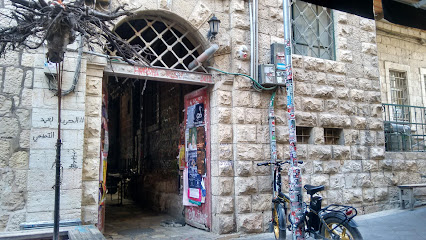
Generation Pub
Experience the vibrant nightlife of Jerusalem at Generation Pub, where local culture meets a lively atmosphere and a fantastic drink selection.
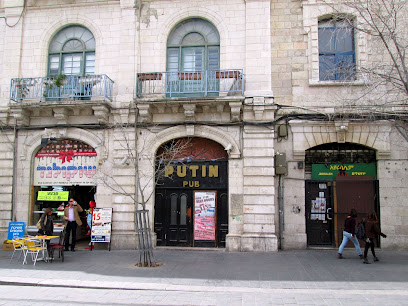
Wine Bar
Experience the best of Italian wine culture in Jerusalem's Wine Bar, where every sip tells a story amidst a vibrant atmosphere.
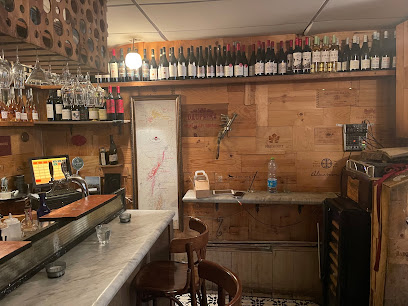
Half parrot
Experience the vibrant nightlife of Jerusalem at Half Parrot, a lively bar offering exceptional drinks and an inviting atmosphere.
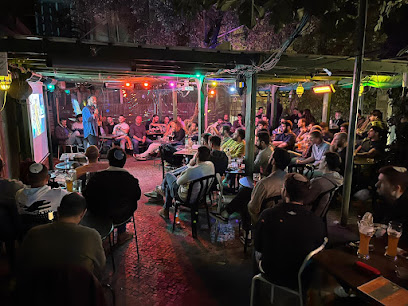
Rabbit Hole
Experience the whimsical charm of Rabbit Hole, Jerusalem's enchanting cocktail bar inspired by 'Alice in Wonderland' for an unforgettable night out.
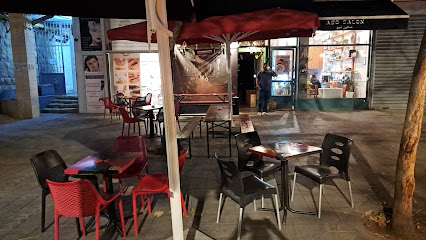
Besarabia
Experience the vibrant nightlife of Jerusalem at Besarabia, where locals and tourists unite over great drinks and unforgettable moments.
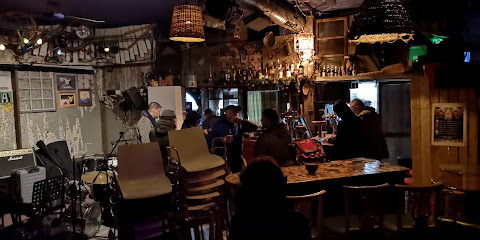
The Red Lady
Experience the vibrant nightlife of Jerusalem at The Red Lady, a cocktail bar known for its creative drinks and lively atmosphere.
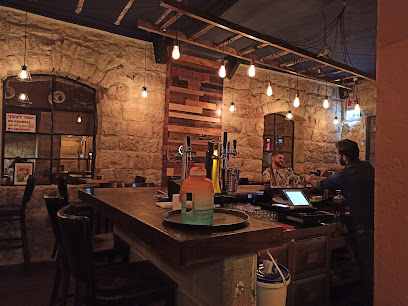
Time Bar & Cafe
Experience the vibrant nightlife of Jerusalem at Time Bar & Cafe, where friendly bartenders and a lively atmosphere await.
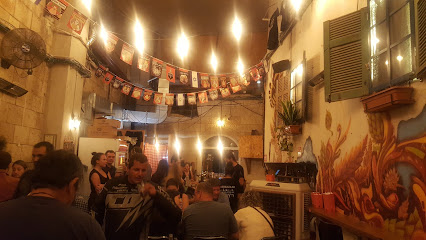
Bar yanai
Experience the vibrant nightlife of Jerusalem at Bar Yanai, where innovative cocktails and a lively atmosphere await you.
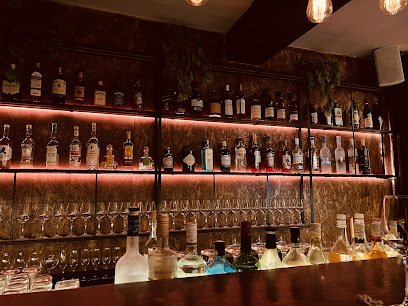
Local Phrases
-
- Helloمرحبا
[marhaba] - Goodbyeوداعا
[wada'an] - Yesنعم
[naam] - Noلا
[la] - Please/You're welcomeمن فضلك / على الرحب والسعة
[min fadlik / 'ala al-rahb wa al-sa'ah] - Thank youشكرا
[shukran] - Excuse me/Sorryآسف
[asif] - How are you?كيف حالك؟
[kayf halak?] - Fine. And you?بخير. وأنت؟
[bukhayr. wa ant?] - Do you speak English?هل تتحدث الإنجليزية؟
[hal tatahadath al-inglizia?] - I don't understandلا أفهم
[la afham]
- Helloمرحبا
-
- I'd like to see the menu, pleaseأرغب في رؤية القائمة، من فضلك
[urghab fi ru'yah al-qaimah, min fadlik] - I don't eat meatأنا لا آكل اللحم
[ana la akl al-lahm] - Cheers!في صحتك!
[fi sahtak!] - I would like to pay, pleaseأرغب في الدفع، من فضلك
[urghab fi al-dafa', min fadlik]
- I'd like to see the menu, pleaseأرغب في رؤية القائمة، من فضلك
-
- Help!مساعدة!
[musaidah!] - Go away!ارحل!
[irhal!] - Call the Police!اتصل بالشرطة!
[itasil bialshurta!] - Call a doctor!اتصل بالطبيب!
[itasil bialtabib!] - I'm lostلقد ضللت الطريق
[laqad dalalt altariq] - I'm illأنا مريض
[ana mareed]
- Help!مساعدة!
-
- I'd like to buy...أرغب في شراء...
[urghab fi shira...] - I'm just lookingأنا فقط أتطلع
[ana faqat attala] - How much is it?كم سعره؟
[kam siroh?] - That's too expensiveهذا غالي جدا
[hatha ghali jiddan] - Can you lower the price?هل يمكنك تخفيض السعر؟
[hal yumkinuk takhfid al-sir?]
- I'd like to buy...أرغب في شراء...
-
- What time is it?كم الساعة؟
[kam al-sa'ah?] - It's one o'clockالساعة الواحدة
[al-sa'ah al-wahidah] - Half past (10)العاشر والنصف
[al-ashir wa al-nisf] - Morningصباح
[sabah] - Afternoonمساء
[masa] - Eveningمساء
[masa] - Yesterdayأمس
[ams] - Todayاليوم
[al-yawm] - Tomorrowغدا
[ghadan] - 1واحد
[wahid] - 2اثنان
[ithnan] - 3ثلاثة
[thalatha] - 4أربعة
[arba'a] - 5خمسة
[khamsa] - 6ستة
[sitta] - 7سبعة
[sab'a] - 8ثمانية
[thamania] - 9تسعة
[tis'a] - 10عشرة
[ashara]
- What time is it?كم الساعة؟
-
- Where's a/the...?أين ...؟
[ayn ...?] - What's the address?ما هو العنوان؟
[ma hu al-eanan?] - Can you show me (on the map)?هل يمكنك أن تريني (على الخريطة)؟
[hal yumkinuk an tarini (ealaa al-kharitah)?] - When's the next (bus)?متى يأتي الحافلة القادمة؟
[mata ya'ti al-hafilat al-qadima?] - A ticket (to ....)تذكرة (إلى ...)
[tadhkirat (ila ...)]
- Where's a/the...?أين ...؟
History of East Jerusalem
-
East Jerusalem's history is deeply intertwined with the Old City, which became a significant center during the Ottoman Empire's rule from 1517 to 1917. Under Ottoman governance, the city was administratively divided, with East Jerusalem becoming a focal point for Islamic scholarship and culture, notably with the establishment of numerous mosques, madrasas, and public baths that still reflect the architectural heritage of that era.
-
Following World War I, East Jerusalem came under British control as part of the Mandate for Palestine. This period saw rising tensions between Jewish and Arab communities, culminating in violent confrontations in the 1920s and 1930s. The neighborhood of Sheikh Jarrah became a flashpoint, representing emerging divisions in the city that would have lasting repercussions in the decades to follow.
-
The 1948 Arab-Israeli War resulted in the division of Jerusalem, with East Jerusalem falling under Jordanian rule. This period saw significant changes in the demographics and administration of the area, where many Palestinian refugees settled. The Jordanian government invested in infrastructure and urban development, further entrenching the cultural and social fabric of East Jerusalem during this time.
-
The Six-Day War in June 1967 led to the Israeli occupation of East Jerusalem. This event marked a significant turning point in the neighborhood’s history, as Israel subsequently annexed the area, a move not widely recognized internationally. The annexation prompted extensive changes in urban planning, with an influx of Israeli settlers and development projects that continue to impact the demographic and cultural landscape.
-
In recent decades, East Jerusalem has become a focal point for ongoing Israeli-Palestinian tensions. The neighborhood is characterized by a vibrant Palestinian culture, with numerous cultural institutions, markets, and community centers, despite facing challenges such as restrictions on movement and economic hardship. This resilience is evident in various cultural expressions, from traditional arts to contemporary activism, reflecting the community's enduring identity amid adversity.
East Jerusalem Essentials
-
East Jerusalem is easily accessible from other neighborhoods in Jerusalem. You can take the light rail from the city center, which connects to various points in East Jerusalem. Buses also run between West and East Jerusalem frequently. Taxis are available, but ensure they use the meter or agree on a fare beforehand, as some drivers may try to overcharge tourists.
-
Public transportation in East Jerusalem includes buses and the light rail. Buses are operated by both the Israeli and Palestinian authorities and can be a bit confusing, so check the routes beforehand. The light rail connects parts of East Jerusalem to the city center. Taxis are widely available and relatively inexpensive. Bicycles can be rented in some areas, but be cautious of traffic and road conditions.
-
While East Jerusalem is generally safe for tourists, it's advisable to stay alert and avoid areas known for higher crime rates, such as certain parts of the Old City at night. Petty crime can occur, particularly in crowded markets. It's best to avoid political demonstrations and to respect local customs and sensitivities.
-
In case of emergency, dial 100 for police, 101 for ambulance, and 102 for fire services. Hospitals and clinics are available, but ensure you have travel insurance that covers medical emergencies. Familiarize yourself with the nearest medical facilities in East Jerusalem for quick access if needed.
-
Fashion: Do dress modestly, especially in religious areas. Women should cover their shoulders and knees; men should avoid shorts. Religion: Do respect sacred sites, and observe local customs. Public Transport: Do give up your seat for the elderly; don't eat or drink on public transport. Greetings: Do greet with a handshake; avoid physical contact with the opposite sex. Eating & Drinking: Do try local foods; don't refuse an invitation to eat, as this can be seen as impolite.
-
To experience East Jerusalem like a local, visit the bustling markets such as the Arab Souk in the Old City for an authentic shopping experience. Try local dishes at small eateries, and don't hesitate to engage in conversation; locals are often welcoming and eager to share their culture. Attend cultural events or festivals if your visit coincides with them, as they provide a glimpse into the vibrant local traditions.
Trending Landmarks in East Jerusalem
Nearby Cities to East Jerusalem
-
Things To Do in Bethlehem
-
Things To Do in Modi'in
-
Things To Do in Dead Sea
-
Things To Do in Ein Gedi
-
Things To Do in Holon
-
Things To Do in Ramat Gan
-
Things To Do in Masada
-
Things To Do in Madaba
-
Things To Do in Hod Hasharon
-
Things To Do in Kfar Saba
-
Things To Do in Salt
-
Things To Do in Jaffa
-
Things To Do in Ashdod
-
Things To Do in Tel Aviv
-
Things To Do in Herzliya













